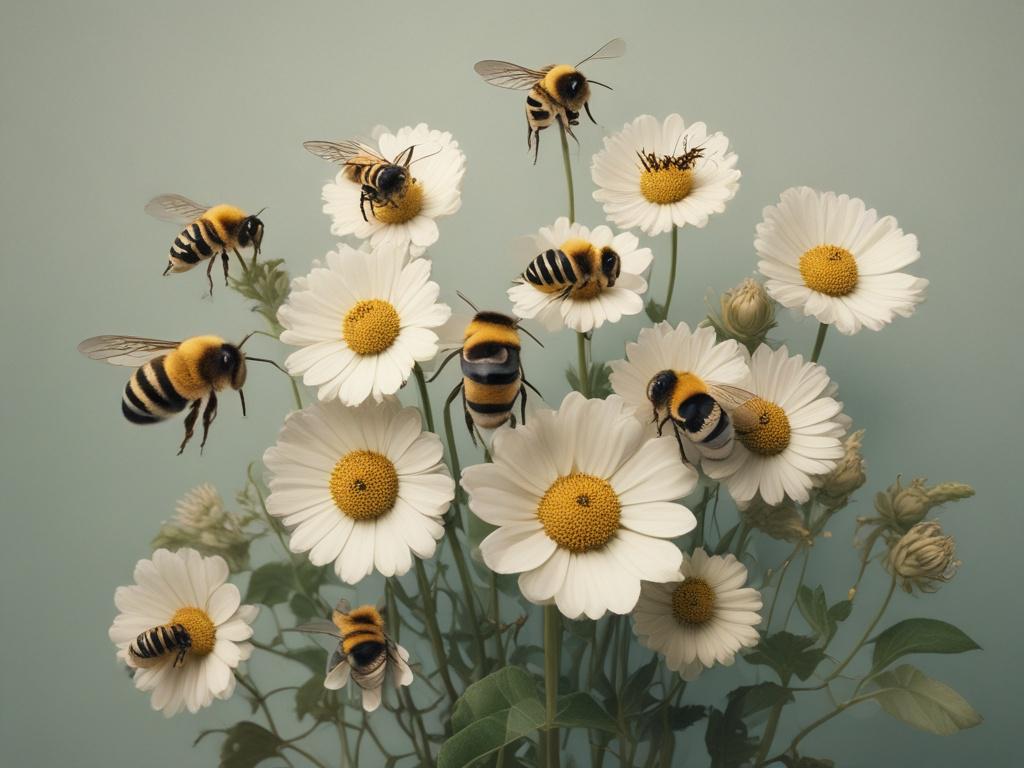

Image By Oleksandrum
Bees play an essential role in our ecosystem, acting as vital pollinators that support food security and enhance biodiversity. As they buzz from flower to flower, honey bees facilitate the reproduction of many plants, which in turn sustains the crops that feed millions around the globe. Without these remarkable insects, our diets would lack variety and nutritional value, leading to a significant decline in food availability. Exploring the crucial impact honey bees have on food security reveals the intricate web of life that relies on their tireless work, highlighting why we must prioritize their protection.
Moreover, honey bees contribute significantly to maintaining ecosystem health by supporting a diverse range of flora and fauna. Their pollination efforts not only aid in the growth of fruits, vegetables, and nuts but also nurture the habitats that countless other species depend on. However, the alarming decline in bee populations due to habitat loss, pesticide use, and climate change threatens both food systems and the intricate balances within ecosystems. This blog post delves into the crucial influence honey bees exert on our food security and biodiversity, while emphasizing the urgent need to protect these insects for a sustainable future.
Understanding the crucial impact of honey bees on food security
Honey bees play a vital role in the production of many crops, directly influencing food security around the globe. These industrious pollinators facilitate the reproduction of flowering plants by transferring pollen from one bloom to another. This process is essential for the growth of fruits, vegetables, nuts, and seeds. Studies show that approximately one-third of the food we consume depends on bee pollination, making honey bees indispensable to agriculture. Their efforts ensure not only a diverse food supply but also contribute significantly to the economy through increased crop yields and enhanced livelihoods for farmers.

Image Designed by brgfx / Freepik
Moreover, the decline in honey bee populations poses a serious threat to food security. As honey bees face challenges such as habitat loss, pesticide exposure, and disease, their ability to pollinate effectively diminishes. This decline in pollination services may lead to reduced crop production and increased prices for essential food items. By maintaining healthy honey bee populations, we safeguard our food systems and promote resilience against climate change and environmental shifts. Understanding the crucial impact honey bees have on food security underscores the need for collective action to protect these invaluable creatures and, by extension, our global food supply.
How honey bees bolster biodiversity and ecosystem health
Honey bees play a vital role in supporting biodiversity by facilitating the reproduction of flowering plants. As they move from blossom to blossom in search of nectar, they inadvertently transfer pollen, enabling fertilization and the production of seeds and fruits. This action not only sustains the plants but also contributes to the overall health of ecosystems by supporting a wide range of species that rely on these plants for food and habitat. Diverse plant life nourishes a variety of organisms, creating a balanced and resilient ecosystem where each species contributes to the overall health and stability of the environment.
In addition to promoting plant diversity, honey bees enhance ecosystem health by encouraging the growth of crops and wildflowers that provide food for other wildlife. Birds, insects, and mammals depend on the fruits and seeds produced by these plants, creating a complex web of life. When honey bee populations decline, the consequences ripple through the ecosystem. Reduced plant diversity leads to diminished food sources for animals, ultimately threatening the survival of numerous species. Protecting honey bees is essential not just for agricultural productivity but also for maintaining the intricate balance of our natural world, ensuring that both biodiversity and ecosystem health thrive for future generations.
The urgent need to protect honey bees for a sustainable future
Protecting honey bees is not just an environmental issue; it is a critical necessity for our future food security and biodiversity. As pollinators, honey bees play a vital role in the agricultural ecosystem, contributing to the production of approximately one-third of the food we consume. Without their tireless work, many crops would see diminished yields, leading to food shortages and increased prices. By creating initiatives that promote sustainable agricultural practices, reducing pesticide use, and advocating for pollinator habitats, we can ensure that honey bees thrive in their natural environments. Each action taken toward their protection serves to sustain not only their populations but also the foundational systems that support human and ecological health.
The decline of honey bee populations poses a significant threat that calls for immediate action from policymakers, farmers, and communities alike. Public awareness campaigns can enlighten individuals about the importance of creating bee-friendly spaces, such as planting native flowers and maintaining organic gardens. Furthermore, supporting local beekeepers and sustainable farming practices can enhance pollinator health in our neighborhoods. By fostering a culture that values and protects honey bees, we can build a resilient ecosystem that secures our food supply and promotes biodiversity for generations to come. Every effort counts in this collective mission to save honey bees and, with them, safeguard the planet's delicate balance.